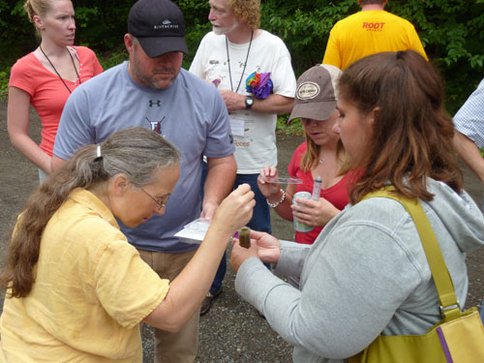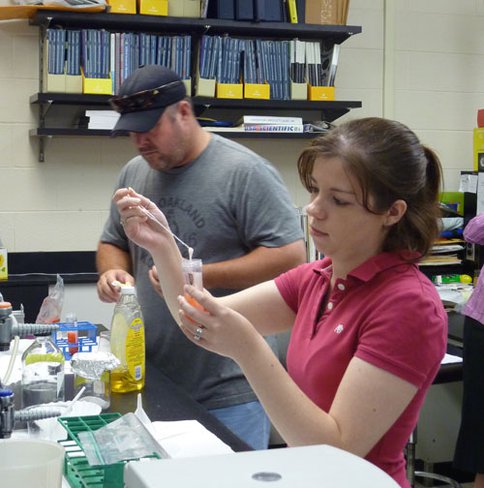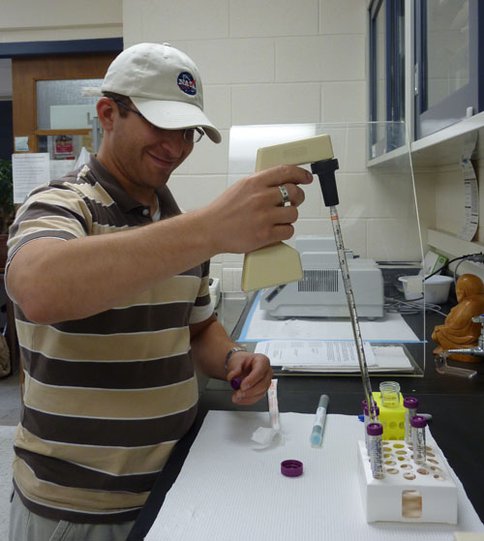2011 Annual Science Report
 Pennsylvania State University
Reporting | SEP 2010 – AUG 2011
Pennsylvania State University
Reporting | SEP 2010 – AUG 2011
EPO Activity: EPO: Astrobiology Workshops for Educators
Project Progress
In FY 2011, in collaboration with the NASA PA Space Grant Consortium and other partners, the PSARC E/PO team hosted two astrobiology-related workshops for in-service K-12 educators at The Pennsylvania State University. The workshops were “Earth’s History: Uncovering Clues of the Past” and “Astrobiology: The Interdisciplinary Search for Life in the Cosmos”.
17 teachers participated in the “Earth’s History” workshop. This one-day workshop was designed to investigate the properties of rocks and fossils to discover clues that reveal the history of the Earth. Educators used scientific techniques to learn more about the geological time scale and participated in activities to help students comprehend the enormous time span of Earth’s history. Teachers explored the Earth and Mineral Sciences Museum on the Penn State campus through the eyes of an expert (Dr. Russ Graham, Museum Director) and learned how you can utilize this resource in their classroom. The teachers were introduced to the field of astrobiology and participated in activities from the “Life on Earth and Elsewhere” Educator Resource Guide.
20 teachers participated in the “Astrobiology” workshop. This five-day, 2-graduate credit workshop was designed to use the excitement of NASA’s current astrobiology-related missions to inspire and educate teachers about the field of astrobiology. The workshop examined how scientists work to detect and characterize life on the early Earth, in extreme environments, and in extraterrestrial settings. The workshop included a one-day field trip with three sites that served as analogs for where life might exist elsewhere. The educators were exposed to the latest research in astrobiology, NASA missions, and related hands-on activities. The teachers participated in activities from the “Life on Earth and Elsewhere” Educator Resource Guide. Strategies for classroom implementation were highlighted as well as best practices in teaching.
Support to teachers included housing, meals and partial travel support as well as materials to take back to their classrooms. Also tuition for two graduate credits was provided. The workshops were approved by the Pennsylvania Department of Education for Act 48 Professional Development credit.
Workshop evaluations included a daily formative evaluation, an online summative professional development questionnaire developed by the Horizon Research, Inc. and a small focus group discussion. The evaluation techniques were intended to measure the effectiveness of workshop design for increasing teacher content knowledge and improving student learning in the middle and secondary classroom.
Educators participate in field work as part of the Astrobiology Educator Workshop at Penn State. This five-day, 2-graduate credit workshop was designed to use the excitement of NASA’s current astrobiology-related missions to inspire and educate teachers about the field of astrobiology.
Educators participate in laboratory experiments as part of the Astrobiology Educator Workshop at Penn State. This five-day, 2-graduate credit workshop was designed to use the excitement of NASA’s current astrobiology-related missions to inspire and educate teachers about the field of astrobiology.
Educators participate in laboratory experiments as part of the Astrobiology Educator Workshop at Penn State. This five-day, 2-graduate credit workshop was designed to use the excitement of NASA’s current astrobiology-related missions to inspire and educate teachers about the field of astrobiology.


